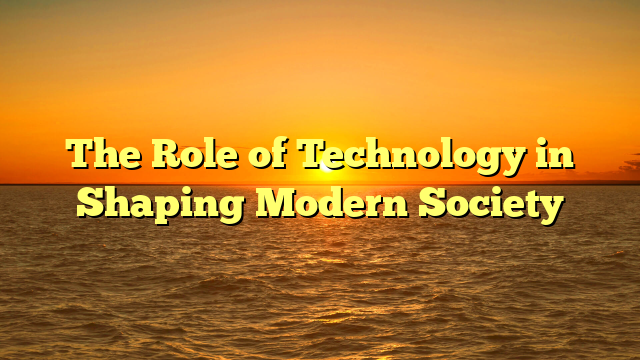Technology has become one of the most influential forces shaping human civilization in the 21st century. From the way we communicate to how we work, learn, and entertain ourselves, technology is deeply woven into nearly every aspect of our daily lives. Its rapid advancement has created opportunities for growth, innovation, and efficiency, but it also brings challenges that societies must address kingindo127 responsibly.
One of the most visible impacts of technology is in communication. The rise of the internet, smartphones, and social media platforms has connected people across the globe in ways unimaginable just a few decades ago. Families can stay in touch despite living on different continents, businesses can collaborate in real-time with international partners, and individuals can share ideas instantly with millions of people. This digital connectivity has not only strengthened relationships but also fostered cultural exchange and global awareness.
In the realm of education, technology has revolutionized traditional learning systems. Online classes, digital libraries, and interactive learning tools have made education more accessible than ever. Students from remote areas can now learn from top universities through online platforms. Teachers can use multimedia presentations to enhance understanding, while artificial intelligence helps personalize learning experiences for each student. However, this shift also highlights the digital divide—many communities still lack access to reliable internet and modern devices, leaving some students behind.
The workplace has also been transformed by technology. Automation, artificial intelligence, and robotics are reshaping industries ranging from manufacturing to healthcare. These innovations have improved efficiency, reduced human error, and allowed businesses to scale operations more effectively. Remote work, supported by video conferencing and project management tools, has become a new norm in many industries, offering flexibility for employees. Yet, this progress also raises concerns about job displacement, as machines increasingly replace certain human roles.
Healthcare has particularly benefited from technological innovation. Telemedicine allows patients to consult with doctors without leaving their homes, while wearable devices monitor vital signs and promote healthier lifestyles. Advanced medical equipment and biotechnology have improved diagnosis and treatment, saving countless lives. At the same time, ethical questions surrounding genetic engineering, data privacy, and the use of artificial intelligence in medical decision-making remain unresolved.
Despite its benefits, technology presents significant challenges. Cybersecurity threats, misinformation, and digital addiction are growing concerns worldwide. The spread of false information on social media can influence politics, harm reputations, and even endanger public safety. Moreover, excessive reliance on digital devices can negatively affect mental health, leading to anxiety, depression, or social isolation. Addressing these issues requires a balanced approach that combines regulation, education, and responsible innovation.
Looking ahead, the future of technology is both exciting and uncertain. Fields like quantum computing, space exploration, renewable energy, and artificial intelligence promise to push human capabilities even further. These advancements have the potential to solve pressing global problems such as climate change, energy shortages, and food insecurity. However, the ethical and social implications of emerging technologies must be carefully considered to ensure that progress benefits all of humanity, not just a privileged few.
In conclusion, technology is a double-edged sword—capable of driving human progress while also creating new challenges. Its role in shaping modern society is undeniable, as it continues to influence communication, education, work, healthcare, and global development. By using technology responsibly and inclusively, humanity can harness its power to build a better, more connected, and sustainable future.
